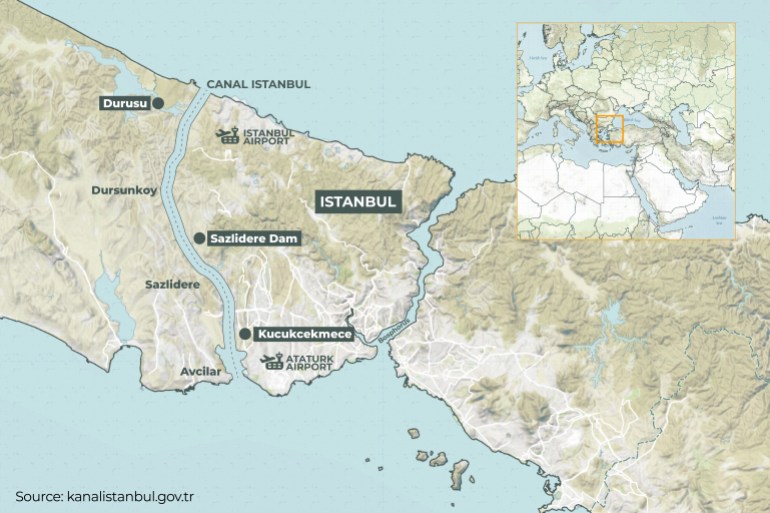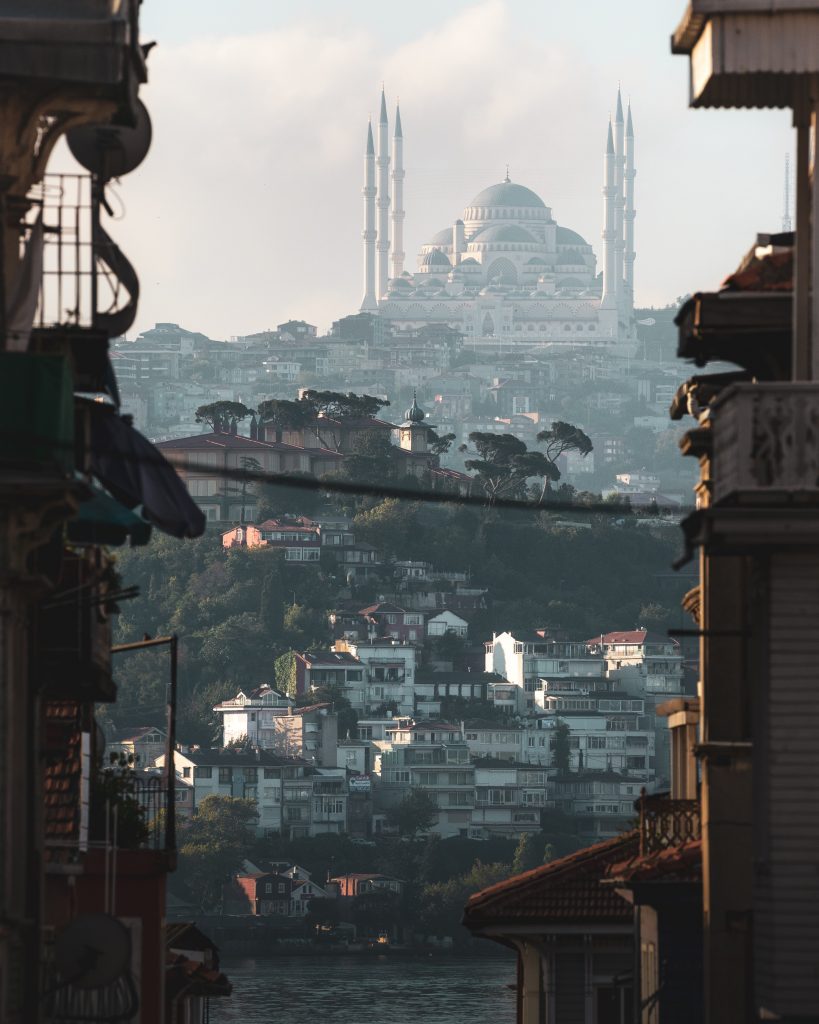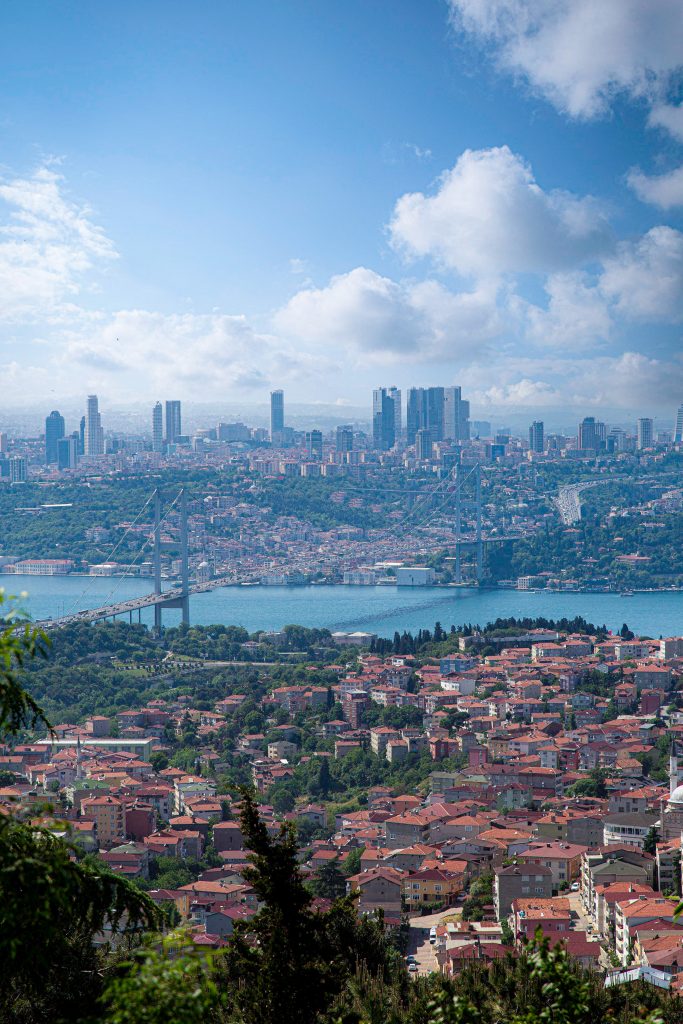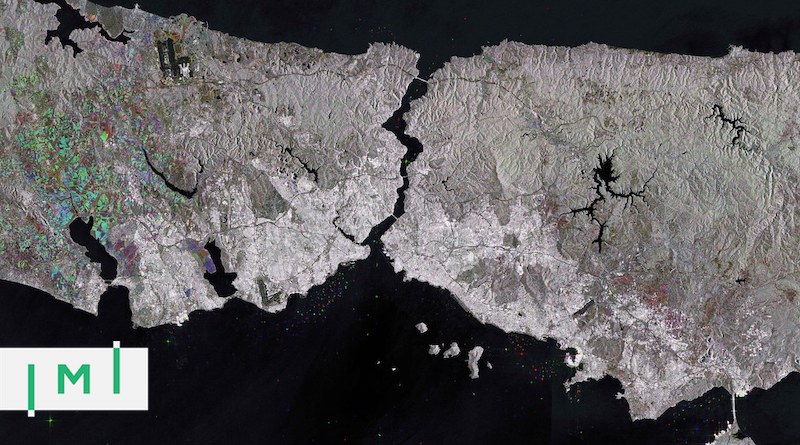Why Turkey Is A No-Brainer for India’s Second-Home Seekers
By Contributor
This wildcard might just be the best bet for millions of affluent Indians actively exploring domicile diversification.
Turkey requires little introduction insofar as well-traveled Indians are concerned – the bulk of whom have frequented Istanbul, either to attend a lavish destination wedding or simply to immerse themselves in the abundance of cultural enrichment this magical metropolis confers upon first-time visitors.
On the diplomatic front, it is no secret that Indo-Turkish ties are arguably at their lowest ebb in decades, by virtue of which India’s mainstream media has taken it upon themselves to depict Turkey’s geopolitical and socio-economic landscape in the bleakest possible light. Reassuringly, these antics are only bought into by the outlets’ predominantly blue-collar viewership base with limited exposure to alternative sources.
High net-worth individuals from the subcontinent tend to overwhelmingly look past the barrage of fabricated reports spewed by Bharatiya Janata Party (BJP) agents masquerading as news anchors. Prominent businesspeople, non-resident and domiciled alike, ought to begin taking stock of Turkey’s bountiful investment opportunities and competitive advantages.
Course Correction
As two ancient civilisations with significant overlap in the way of customs and traditions, there’s plenty more scope for cooperation between Turkey and India than is currently the case. The erstwhile Indian Ambassador to Turkey, H.E Sanjay Panda, pertinently highlighted that bilateral relations need a mere “course correction” as opposed to total recalibration.
On that note, it is largely incumbent upon the External Affairs Ministry (MEA) to foster greater people-to-people exchange and pay less credence to petty skirmishes that compromise enormous untapped synergy between the two G20 members. A logical overture of reconciliation would be the inclusion of Turkey on India’s vast list of e-visa eligible countries, which could well invoke reciprocity in kind.
Cordiality at the governmental level will undoubtedly instill a renewed sense of confidence across the private sector and propel more extensive trade than the modest volume of dealings carried out at present. Should New Delhi and Ankara play their cards right, there is no telling the heights their economies can scale in concert. Turkey is not only situated at a critical crossroads of the Orient and the Occident but remains a major force to be reckoned with in the global arena.
The ruling Justice and Development (AK) Party has embarked on a series of megaprojects that serve to cement the country’s status as a modern-day superpower and overshadow fleeting domestic menaces, such as currency fluctuations and occasional small-scale demonstrations, that receive disproportional coverage by partisan, agenda-driven journalists.
A Country on the Move
Besides having harnessed its enviable location to build the world’s largest airport while getting construction of the Istanbul Canal and Galataport underway, the enterprising nature of those currently at the helm is further embodied through the country’s much-vaunted citizenship by investment program (CIP).

Initially conceptualised to align demand from overseas with surplus properties that mushroomed across the major cities, the scheme has roped in billions worth of “sovereign equity” and, in so doing, borne testament to how buoyant Turkey’s real estate market currently is. While the phenomenal success of this initiative is partially attributable to capital gains accrued upon liquidation, the acquisition of nationality has proven to be the main pull factor for the new wave of homeowners.
The Turkish passport is a marked upgrade from the Indian one. Holders enjoy visa-free access to 110 countries, including much of South America, Eastern Europe, Central Asia, Japan, South Korea, and Iran. Aside from mobility privileges and the coveted E-2 visa treaty with the United States, establishing a sense of belonging in a country that affords its inhabitants a fantastic standard of living carries just as much, if not more, weight.
Irrespective of whether one wishes to lead a liberal or conservative lifestyle, the Republic’s deep-rooted legacy as a beacon of peaceful coexistence ensures smooth assimilation for residents of all creeds. Anyone fortunate enough to call this transcontinental nation home can truly experience the best of both worlds – old and contemporary.
Bucking the Trend
Traditionally, there has been an inherent proclivity on the part of Indian nationals to regard Turkey purely through the prism of a tourist and thereby write off the prospect of resettlement. Boasting a pleasant year-round climate, divine cuisine, diverse topography, world-class healthcare facilities, free public schooling, and a robust banking sector, there is no conceivable reason this Eurasian gem should not feature front and centre as a migration hotbed akin to the likes of Canada or Australia.

For start-up entrepreneurs seeking global outreach, having a base in Turkey serves as an ideal platform to raise brand awareness and generate credibility across neighbouring geographies, while profiting from an inexpensive yet highly-skilled workforce on the ground. When it comes to the burgeoning pool of disillusioned Indian émigrés hell-bent on doing away with any civic ties or obligations to their motherland, Turkish CIP offers, by far, the most seamless and no-frills path to naturalisation.
Given the stringent minimum stay requirement the aforementioned Commonwealth states impose on permanent residents, citizenship-by-investment programs are fast emerging as an attractive means to bypass this prerequisite as well as the meritocratic premise on which candidates are filtered, albeit at a comparatively hefty outlay.
Disenfranchisement with the West
There is no denying that the West is gradually losing its luster as a promised land of sorts for those in search of better lives. Tax clampdowns are just one of several draconian measures engendering an aura of despondency throughout the developed world. Although contributing one’s fair share of earnings to public coffers is part and parcel of living in any progressive jurisdiction, the unfathomable causes towards which these proceeds are being channeled no longer sit well with the economically active.
Rather than plowing fiscal revenues back into bolstering infrastructure and the general upkeep of their respective nations, left-leaning regimes appear more preoccupied with pampering newcomers and the unemployed via the creation of munificent welfare systems that disincentivise entry into the labour market.
Moreover, the enactment of overtly socialist policies towards corporates is inhibiting entrepreneurship and, by extension, potential job creation across the West. Immigrants, who have a penchant for risk-taking and innovation, are already feeling the pinch of the taxman’s heavy-handedness whereas salaried workers have begun prolonging or even shelving plans to transition into self-employment.
Meanwhile, the gross mishandling of the COVID-19 pandemic has emerged as the final nail in the coffin for many of these governments. Using the outbreak as a pretense to gravitate towards semi-autocratic leadership continues to incite huge blowback from freedom-cherishing citizens. So does promulgating their ideological will upon the public at large. The manner in which elite politicians have gone about espousing diversity, for instance, has incidentally sowed greater polarisation instead of bridging cultural gaps.
The sense of otherness is far more acute now in most Western societies, as heads of state go out of their way to pander to the whims and fancies of asylum seekers at the expense of their own citizens. Anyone with an aesthetic appearance even remotely deviant from the masses attracts palpable skepticism from onlookers. The them-and-us attitude playing out across Western Europe, North America, and Oceania is rendering families of colour increasingly ill-at-ease and forcing them to live as a periphery or fifth column.
Last Man Standing
Those looking to move overseas from India mistakenly take an à la carte approach towards their country of preference. Immigration law firms there, which essentially operate as glorified brokerage houses pushing just one or two points-based programs, are largely to blame for this phenomenon. Inadequately-qualified consultants passing themselves off as industry experts blindly cater to the impulses of misled clients rather than inferring which option best corresponds with their specifications and objectives.
It is high time outbound Indians abandoned herd behaviour while taking a decision of this magnitude and avoided confining themselves to just the handful of places with which they are familiar, courtesy of word of mouth.
Granted, stakeholders keeping pace with developments in the citizenship and residency planning sector will argue that they are not exactly spoilt for choice at the moment. There has been a domino-style collapse of CBI offerings, notably by nations tethered to the European Union in one way or another.
Moldova’s short-lived scheme, which funnily enough was scrapped in the very same year it was introduced, is a noteworthy example that comes to mind. As Europe’s poorest country keen to break away from the Soviet orbit, its newly-elected government back in 2019 ceased commoditising citizenship to appease the Union in which its future purportedly lies. Montenegro will also be pulling the plug on its current program, which never really took off, from 2022 onwards. From the standpoint of the Montenegrin authorities, it no longer seemed like a logical tradeoff to keep this endeavour running if it jeopardised their chances of eventual EU accession.
Cyprus’ CIP is officially defunct after senior ministers were caught red-handed by undercover reporters attempting to onboard confirmed criminals. Even more worrisome is that several successful applicants with questionable backgrounds have recently had their passports revoked and are left with nothing but overpriced bungalows in a stand-alone island that bears closer resemblance to the Middle East than to Europe.
The Maltese are already on thin ice with the continent’s human rights watchdogs ever since the mysterious assassination of outspoken CBI critic Daphne Caruana Galizia in 2017. While MP Alex Muscat has vowed not to nullify the scheme lock, stock, and barrel as per EU demands, his country simply does not have the leverage to take any kind of anti-establishment stance vis-à-vis policymakers in Brussels. Being the first ports of entry for illegal North African and Levantine migrants heading towards Western Europe, fellow member states would be doing themselves a massive favour by discarding both backwaters from the bloc, especially as a recurrence of the 2015 refugee crisis looms large.
Although North Macedonia and Bulgaria technically have fast-track mechanisms in place to naturalise foreign company founders injecting sizeable capital into the country to the tune of €400,000 and €1m respectively, it is only a matter of time before they too capitulate in the face of pressure from Brussels. The North Macedonian Government has gone one step further by instituting a Carribean-esque donation option of €200,000 to their state fund in exchange for citizenship. Yet to gain momentum in the investment migration circuit, it is anyone’s guess how long the window for submitting applications will remain open.
What sets the Turks apart from the Western Balkan quintet and other EU aspirants is their brazen indifference on whether they make the cut or not. President Erdogan has reminded his supporters multiple times that the union needs Turkey more than the latter needs the bloc. Indeed, this statement does ring true as the Republic is a logistical powerhouse in its own right and has been the chokepoint for millions of refugees from Syria and Iraq hoping to make it to European shores.

The Turkish CIP is also an outlier in the sense that it entails no sunk cost above and beyond the reasonable minimum investment threshold of $250,000 in real estate whereas virtually all the other European options involve irrecoverable contributions. Additionally, the Lira’s projectile-like decline of late presents a golden opportunity for far-sighted investors to snap up homes on the cheap in one of the most sought-after cities in the region and receive their Turkish passports three months thereafter.
UAE Fixation
Indians have long had a soft spot for the United Arab Emirates (UAE) and, in particular, Dubai, for good reason mind you. State-of-the-art infrastructure, impeccable cleanliness, unparalleled safety, tax-free income, efficiently-run public services, the absence of language barriers, the ease of doing business, and respect for rule of law are just some key selling points that have brought an influx of South Asian migrants to the Gulf State for decades. Furthermore, bouncing back so handsomely from the wrath incurred by coronavirus has contributed greatly to putting the UAE on a pedestal in the eyes of outside observers.
The Emiratis’ relentless and praiseworthy drive to quash the pandemic in time for Expo 2020 has won the hearts of Indians who suffered tremendously as a result of their government’s lacklustre response and blatant disregard for countless lives lost back home. Derisory inoculation rates and ICU units inundated with helpless patients exposed the frailties of a nation that ironically touts itself as a medical tourism hub.
The BJP’s inability to effectively contain the virus has added impetus to the urgent need for contingency planning among senior citizens to whom healthcare is paramount. World-class treatment facilities in the UAE, together with geographic proximity, make it an easy pitch to this contingent. However, numerous pitfalls are associated with being an Indian national in the Emirates, not least of which is the ”overrepresentation” factor.
The three-million-strong Indian diaspora is composed mainly of unskilled guest workers, at the mercy of subcontractors, who set an unfavourable precedent for the rest of the community. There is an unwritten social pecking order in which Indians find themselves at the very bottom. They are widely looked down upon as working-class across various professional circles. Constituting the lion’s share of expatriates throughout the GCC, there are understandable undercurrents of animosity and resentment towards a non-Arab ethnic group being so overly visible in a Middle Eastern country.
Should an emergency arise requiring consular intervention, Dubai-based Indians are bound to be left high and dry regardless of the gravity of their circumstances. Given the volume of labour complaints the Indian Embassy is bombarded with on a near-daily basis, their staff is unlikely to even acknowledge pleas for help from citizens in distress, let alone come to their aid.
Turks, on the other hand, benefit from hands-on diplomatic protection and command far greater respect in the UAE as a much smaller caucus made up of chiefly Western-educated C-level executives working for multinational companies. The landmark visit of Abu Dhabi Crown Prince Mohammed Bin Zayed (MBZ) to Ankara last week is a harbinger of what lies in store for an already flourishing relationship that encompasses multifaceted dimensions.
It would not be the least bit surprising to see a mutual visa waiver agreement come into effect between Turkey and the UAE in the near future. Being one of the few countries for which Emiratis still need a visa to visit, the removal of this formality will surely be perceived as a gesture of goodwill by the UAE’s Ministry of Foreign Affairs – the entity tasked with enhancing travel freedom for its countrymen. At the same time, canceling entry requirements for a promising market of 82 million Turkish citizens would be a much-welcomed boon for Dubai’s post-pandemic tourism industry.
India’s Theocratic Pivot
All too often, we are reminded that religion and politics simply do not mix. Nowhere is the calamitous outcome of intertwining these two components more apparent than in today’s India. Narendra Modi’s Hindutva doctrine has eroded any shred of secularism the country historically prided itself on. His fundamentalist dogma inspired by the right-wing organization Rashtriya Swayamsevak Sangh (RSS), of which he remains a staunch adherent, is still very much alive and well.
Seeking to embed this radical ethos into every aspect of the societal fabric, an environment now exists in which minorities, including moderate Hindus, feel more and more perturbed. As religious intolerance escalates in India, the stakes are particularly high for expats living and working in Muslim-majority countries.
Insensitive, off-the-cuff public remarks by BJP cabinet ministers construed as islamophobic could turn GCC-based Indian commoners into collateral damage and shatter their livelihoods overnight.
Heedful of China’s remarkable prosperity and advancement over the past twenty-odd years, it would not be entirely unreasonable to assume that a discreet maneuver towards totalitarian governance may ultimately reap similar results. Nevertheless, being a half-baked dictator in a country as pluralist as India has certainly not done wonders for the Prime Minister. Having plummeted to 142nd place in the 2021 Press Freedom Index alongside Junta governments such as those of Myanmar and South Sudan, the “world’s largest democracy” will see intellectual dissidents and the creatively-inclined fleeing in large numbers for greener pastures where independent thinking is not so-constricted.
Hoping for constructive change in an overpopulated country fraught with deeply-entrenched backwardness is not just farfetched but a lost cause altogether. The extent to which a legacy of protectionism and inertia reigns supreme in India severely undermines its foreign minister’s capacity to augment the country’s abysmal travel freedom score. Occupying a measly 69th position on the 2021 Arton Passport Index, the Indian passport has been consistently languishing near the tail-end of the table ever since the inception of these comprehensive rankings.
Moreover, it is highly unlikely that there will be an upward trajectory anytime soon. No concerted efforts are being made to eradicate abject poverty or tackle the population crisis spiraling out of control – both of which happen to be the root causes behind Indians being flagged as undesirables the world over. As far as counterpart nations are concerned, extending unfettered entry to 1.3 billion people, among whom illiteracy and bleak career prospects are rife, could well unleash a trojan horse once news of such an arrangement circulates among India’s notorious human traffickers.
Exodus Galore
India’s sorry state of affairs is making it difficult, if not impossible, for its people to derive any sense of patriotism and stick around in anticipation of better days ahead. In an epoch of extensive cross-border travel, passports are becoming as much a status symbol as any other prized material possession. There has never been a more fitting time to pursue second citizenship for those who were previously lukewarm on switching allegiances.
Well-intentioned Indian travelers are fed up with being painted with the same brush as potential overstayers and arbitrarily grilled at immigration checkpoints. All in all, there is an irrefutable consensus among most level-headed Indians to buffer themselves against unforeseen circumstances brought about by a government complicit in accelerating an unprecedented brain and wealth drain from the country. Although the Turkish CIP is, by no means, the solution to their myriad travel woes, nor the only exit route at their disposal, it does tick most of the boxes upon scratching beneath the surface.


